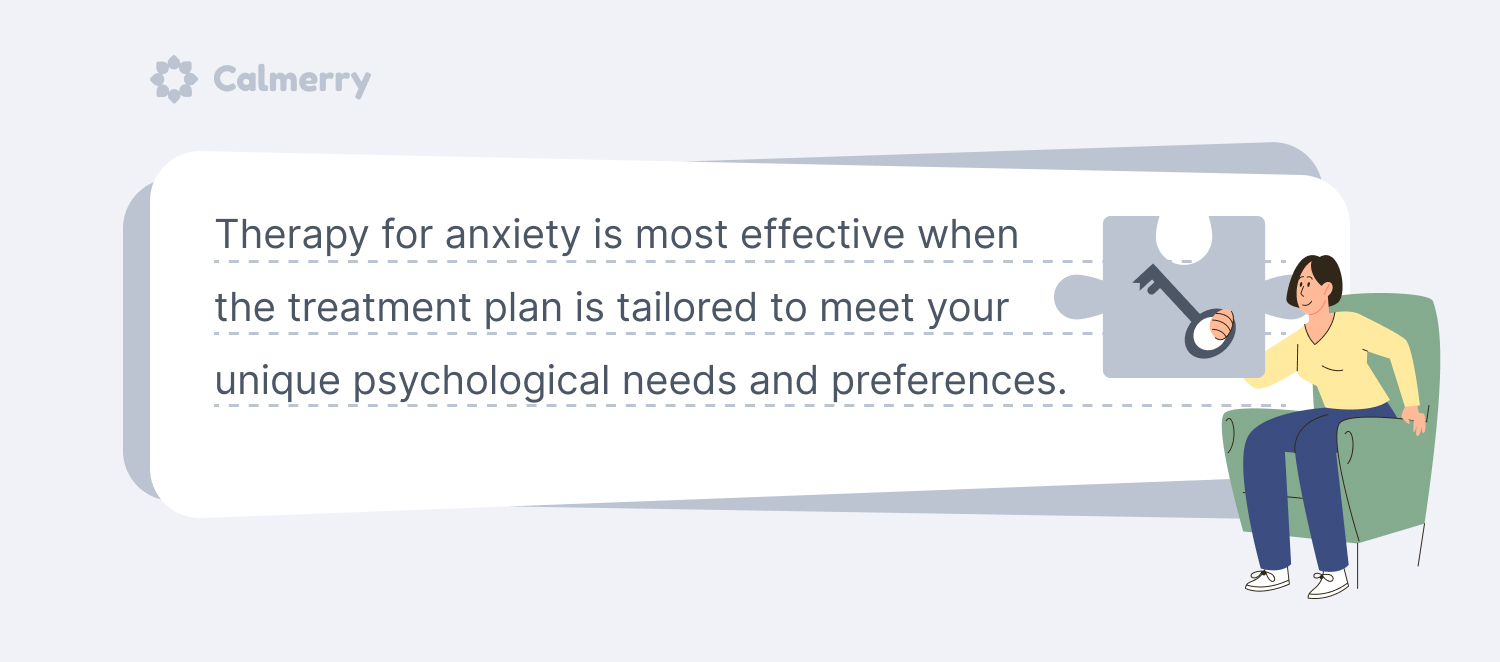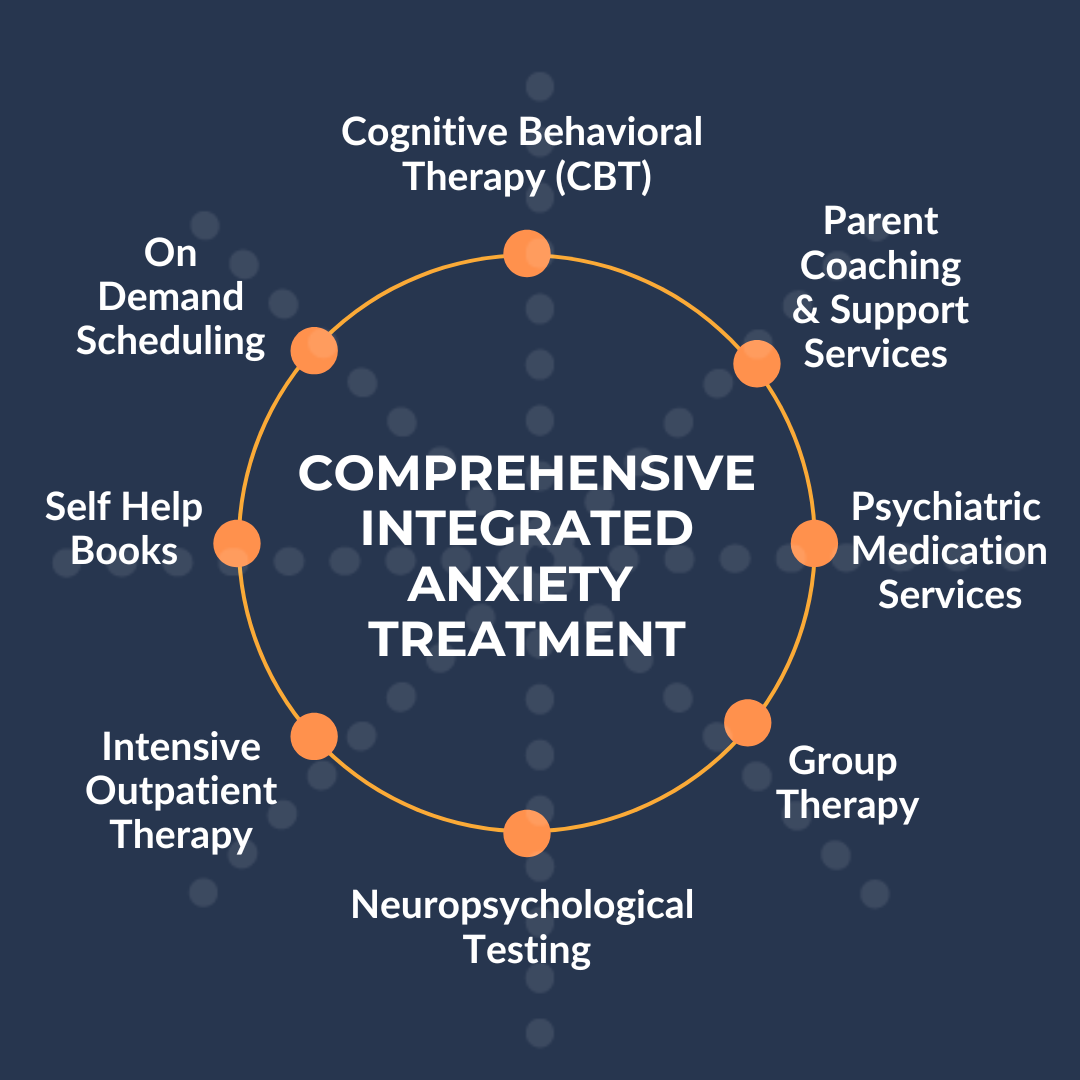Effective Approaches in Coaching for Anxiousness Disorder: A Path to Healing
When encountering stress and anxiety problems, you may feel unclear and overwhelmed of where to turn. Effective counselling strategies can pave the means for recovery, giving you with the tools to navigate your obstacles. From cognitive-behavioral methods to mindfulness practices, each strategy supplies unique advantages. Recognizing exactly how these methods function together can make a significant distinction in your trip. So, what are the essential elements that will direct you in the direction of lasting change?

Recognizing Anxiousness Conditions: A Thorough Review
It's important to recognize that they encompass an array of conditions characterized by excessive anxiety or fear when you think about anxiousness conditions. These disorders can show up in various means, consisting of generalized anxiousness disorder, panic attack, and social anxiety disorder. You might experience symptoms like quick heart beat, sweating, or difficulty focusing. It prevails to really feel overloaded, and these feelings can disrupt daily life.Understanding the origin of anxiousness is vital. They can originate from genes, mind chemistry, or ecological elements. You might find that particular scenarios activate your anxiousness, making it essential to determine these triggers.
Cognitive Behavior Modification (CBT): Improving Idea Patterns
Cognitive Behavior Modification (CBT) offers effective tools for improving the thought patterns that add to anxiousness conditions. With CBT, you'll discover to determine and challenge unfavorable thoughts that fuel your anxiety. Instead of letting concern determine your activities, you'll work with reframing those thoughts right into even more favorable, reasonable ones. This procedure aids you damage the cycle of stress and anxiety by changing how you view situations.You'll also establish dealing strategies to take care of stress and anxiety in real-time. By practicing direct exposure strategies, you'll slowly encounter your fears in a controlled manner, decreasing their power over you. Additionally, you'll gain abilities to problem-solve and browse demanding scenarios extra effectively.CBT is structured and goal-oriented, which means you'll see development as you apply what you discover in treatment to your every day life. With dedication and method, you can considerably minimize your stress and anxiety and improve your general health.
Mindfulness and Leisure Techniques: Growing Present-Moment Awareness
Mindfulness and leisure strategies help you cultivate present-moment awareness, enabling you to take care of anxiety better. By focusing on the right here and now, you can break without the cycle of concern and rumination that often gas anxiousness. Start by exercising deep breathing workouts. Inhale gradually via your nose, hold for a minute, after that exhale through your mouth. This basic strategy can soothe your mind and body.Engage in mindfulness meditation by setting apart a few mins each day to observe your ideas without judgment. Take notice of your breath, sensations, and the noises around you. You might also find worth in progressive muscular tissue leisure, where you stressful and relax each muscle team, advertising physical and psychological ease.Incorporating these methods right into your day-to-day regimen can develop a better feeling of control, lower stress and anxiety symptoms, and enhance your overall wellness. Remember, uniformity is vital to experiencing the advantages.
Direct Exposure Treatment: Facing Concerns Progressively
Exposure therapy helps you encounter your worries gradually, allowing you to construct confidence in time. By utilizing steady exposure techniques, you can slowly face what makes you anxious while creating effective coping systems. This process not just minimizes your worry but additionally empowers you to manage anxiety better.
Steady Exposure Methods
You can effectively reduce anxiety and reclaim control over your life when you confront your anxieties gradually. Progressive direct exposure strategies entail facing your fears tip by action, starting with less frightening situations (counselling for anxiety). You could begin by thinking of the been afraid scenario, after that proceed to watching images or videos connected to it. Eventually, you can exercise confronting the worry in the real world, but just when you feel all set. This approach permits you to construct confidence as you relocate through each phase. Remember to pace yourself; rushing can raise anxiety. Commemorate small triumphes along the road, as each progression encourages you. By consistently applying these strategies, you'll find that your anxieties start to lose their grip on your mind
Building Coping Devices
Building efficient coping devices is important for taking care of anxiety, specifically as you face your concerns gradually with exposure therapy. Start by identifying your particular concerns and damaging them down into convenient actions. In this manner, you can slowly challenge each fear without coming to be overloaded. If you have a hard time with social situations, begin by practicing small interactions, like welcoming a neighbor.Alongside steady exposure, include relaxation techniques such as her response deep breathing or mindfulness to calm your mind prior to encountering triggers. Maintain a journal to track your progression and commemorate tiny triumphes. Border on your own with encouraging close friends or a therapist who can direct you. Keep in mind, it's a journey-- perseverance and determination will strengthen your coping systems, causing better durability versus anxiety.
Supportive Therapy: Building Count On and Connection
To properly support a person with stress and anxiety, establishing trust fund and connection is necessary from the very first session. You'll wish to produce a safe room where they really feel comfy revealing their ideas and feelings without judgment. Active listening is key; show genuine passion in what they share. Acknowledge their sensations and validate their experiences. It's essential to be compassionate, as this helps construct a link and motivates openness.Be consistent in your method and maintain privacy to further strengthen that trust fund. Usage open body language and make eye get in touch with to share your attentiveness. Bear in mind, your persistence goes a long method; building rapport takes time, and it's crucial to appreciate their speed. By cultivating this helpful environment, you'll encourage them to involve even more totally in the restorative process, making it simpler for them to explore their anxiousness and work toward recuperation.
Group Treatment: Shared Experiences and Collective Recovery
Team therapy can be an effective device for those handling anxiety disorders, as it allows individuals to share their experiences and find relief in the understanding of others. In this encouraging atmosphere, you can share go now your sensations without worry of judgment. Listening to others' stories can normalize your own experiences, making you feel less alone in your struggle.Participating in team therapy aids you develop dealing techniques through shared understanding and understandings. As you pay attention to others, you might discover new ways to tackle your anxiety that you hadn't considered before.Moreover, the collective recovery that occurs in these sessions can cultivate a feeling of community, reminding you that you're not encountering your obstacles alone.Building links with others that recognize your struggle can improve your self-confidence and motivation to face your stress and anxiety. Team treatment develops a room where development and recovery become a shared journey, equipping you to take actions towards recovery.
Integrating Way Of Life Changes: Alternative Strategies to Stress And Anxiety Management
While treatment offers essential support, integrating way of life modifications can greatly boost your capacity to manage stress and anxiety. Begin by integrating routine exercise into your regimen. Exercise launches endorphins, which can elevate your mood and lower stress and anxiety. Next off, pay attention to your diet plan. Taking in a balanced diet rich in fruits, vegetables, and entire grains can favorably impact your mental wellness. Do not forget rest-- go for 7-9 hours per night, as quality rest is essential for emotional regulation.Mindfulness practices, such as reflection or yoga exercise, can likewise aid you stay based and existing. Take into consideration establishing aside time each day to exercise these techniques. Restriction caffeine and alcohol intake, as they can aggravate anxiety symptoms. By making these alternative adjustments, you create a more powerful foundation for handling anxiousness, complementing the benefits obtained from therapy. counselling for anxiety. Remember, every small step depend on your course to recuperation

Often Asked Questions
What Are the Common Physical Signs of Anxiety Conditions?
Typical physical signs of anxiety conditions consist of fast heart price, shortness of breath, muscular tissue tension, sweating, and frustrations. You may additionally experience exhaustion, lightheadedness, or stomach issues, which can further complicate your life.
The Length Of Time Does Therapy for Anxiety Generally Take?
Counseling for stress and anxiety commonly takes a few weeks to several months, depending upon your individual needs and development click reference (counselling for anxiety). You'll discover that normal sessions assist you develop dealing strategies and gain insights right into your anxiousness

Can Anxiety Problems Be Totally Healed?
While anxiety conditions can't constantly be entirely healed, you can manage your signs and symptoms properly. With the right approaches and support, you'll discover means to minimize anxiousness, improve your health, and lead a meeting life.
What Should I Do in a Panic Assault?
Throughout an anxiety attack, concentrate on your breathing. Breathe in deeply through your nose, hold for a minute, then exhale gradually. Ground on your own by naming objects around you, and advise yourself it will pass.
Exist Medications for Stress And Anxiety Problems?
Yes, there are a number of medications for anxiety disorders, consisting of antidepressants and benzodiazepines. You need to seek advice from a healthcare expert to discover the best therapy plan tailored to your specific demands and scenarios for the very best results. When you assume about anxiousness conditions, it's crucial to recognize that they incorporate a range of conditions identified by excessive concern or concern. These disorders can show up in various ways, consisting of generalized anxiousness condition, panic condition, and social stress and anxiety problem. Building efficient coping mechanisms is vital for managing anxiety, especially as you face your anxieties slowly via exposure therapy. Team therapy can be an effective device for those dealing with anxiety problems, as it allows individuals to share their experiences and find relief in the understanding of others. As you listen to others, you may uncover brand-new methods to tackle your anxiety that you hadn't taken into consideration before.Moreover, the cumulative healing that occurs in these sessions can foster a feeling of area, reminding you that you're not encountering your difficulties alone.Building links with others that recognize your battle can increase your confidence and inspiration to confront your stress and anxiety.